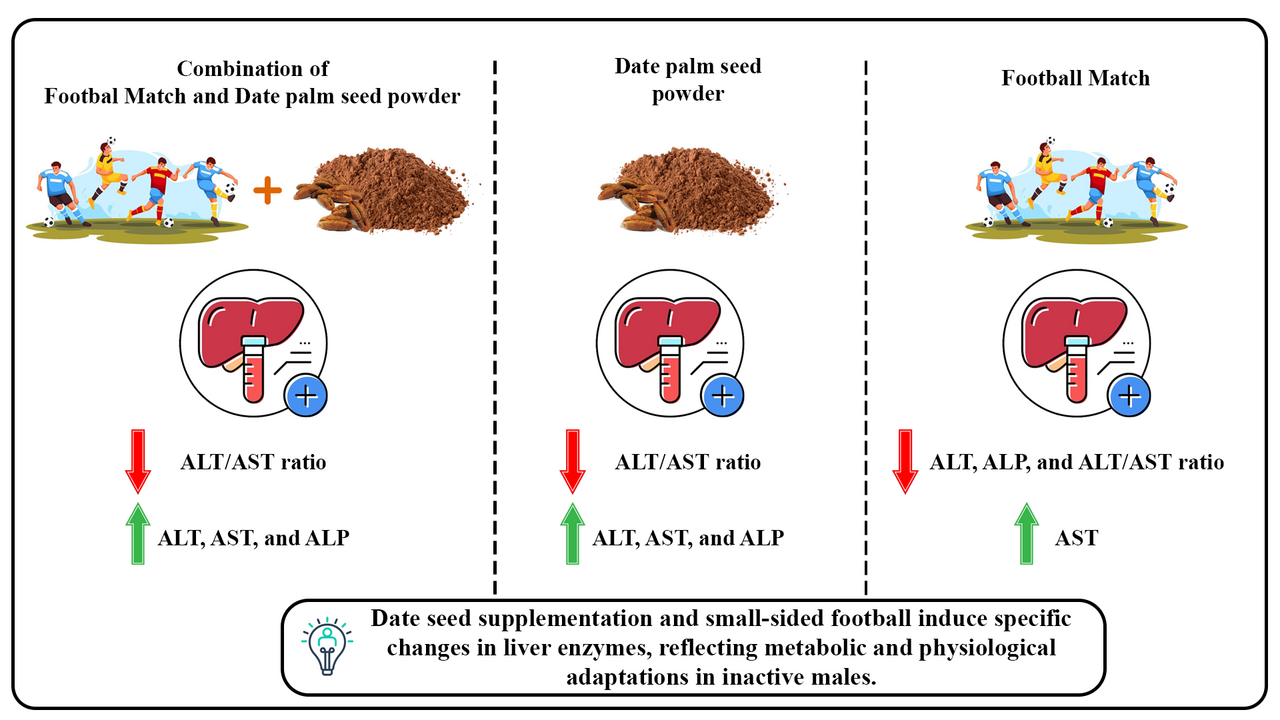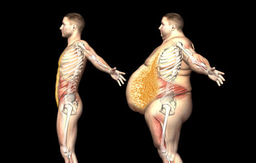Effects of small sided football and date seed (Phoenix dactylifera) powder supplementation on liver enzymes in inactive college subjects: an interventional study
Published in Healthcare & Nursing, Social Sciences, and Public Health

Purpose
In recent years, the rising prevalence of metabolic disorders and liver dysfunction due to sedentary lifestyles and poor nutrition has become a growing health concern. This study investigates the effects of small sided football (SSF) and date seed powder (DSP) supplementation on liver enzymes, including aspartate aminotransferase (AST), alanine aminotransferase (ALT), alkaline phosphatase (ALP), and the ALT/AST ratio in inactive college subjects.
Methods
Fifteen inactive male dormitory residents aged 21.53 ± 1.88 years (height: 174.46 ± 4.88 cm, weight: 67.67 ± 11.05 kg), who exclusively consumed university cafeteria meals, participated in two football matches. Between these matches, they consumed 0.25 g/kg of body weight of DSP thrice weekly for four weeks. Blood samples and anthropometric indices were collected before and after each game.
Results
The results indicated that SSF alone led to a reduction in ALT, ALP, and the ALT/AST ratio, while increasing AST levels (p > 0.05). Furthermore, it was observed that supplementation with DSP resulted in an increase in ALT, AST (p = 0.019), and ALP, along with a decrease in the ALT/AST ratio. Additionally, the findings revealed that SSF following one month of DSP supplementation led to an increase in ALT, AST (p = 0.002), and ALP (p = 0.035), while decreasing the ALT/AST ratio.
Conclusions
Four weeks of supplementation with DSP and SSF can improve liver enzyme levels, such as ALT, AST, and ALP, which indicate physiological adaptation to exercise and the potential impact of supplements on liver metabolism.





Please sign in or register for FREE
If you are a registered user on Research Communities by Springer Nature, please sign in